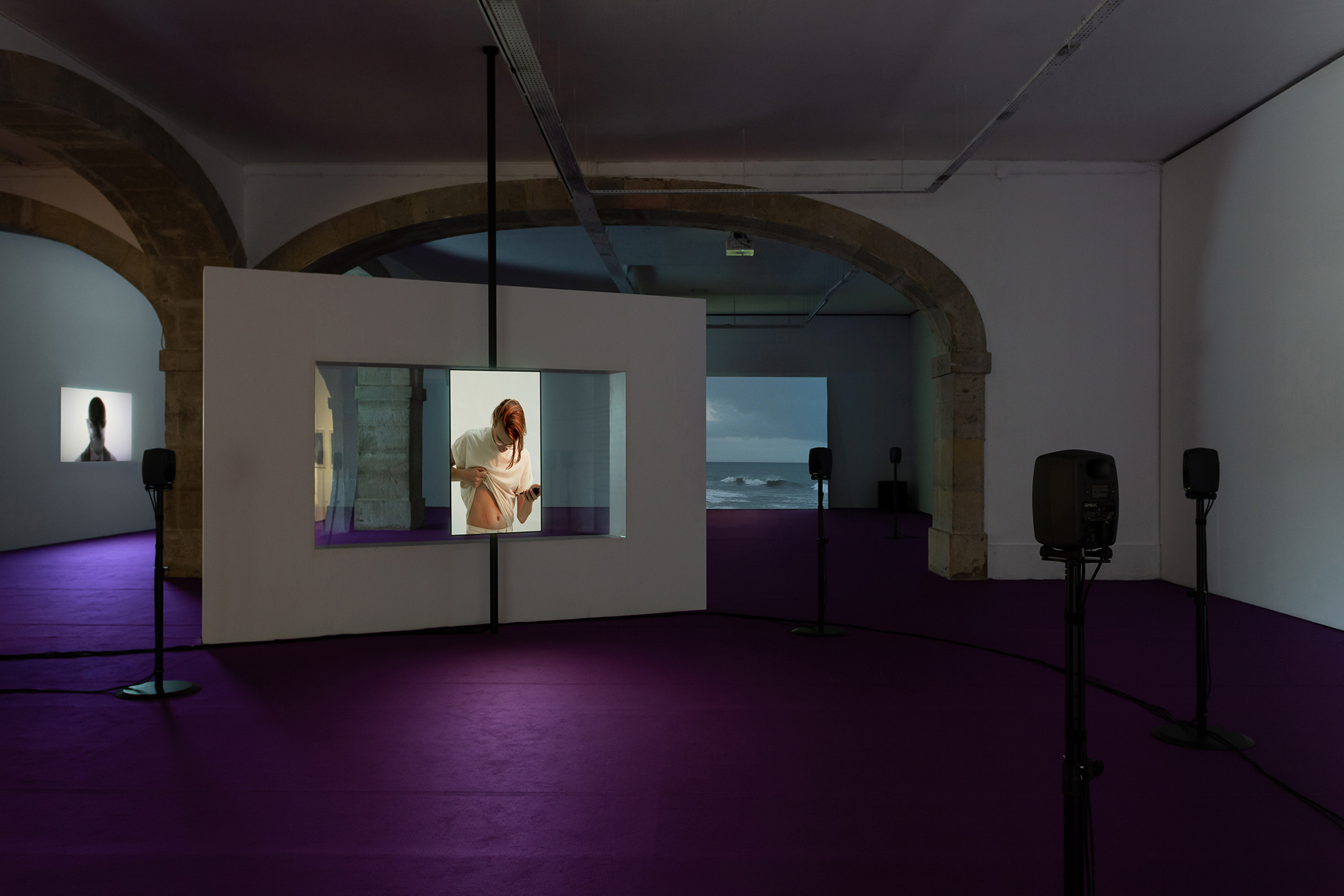
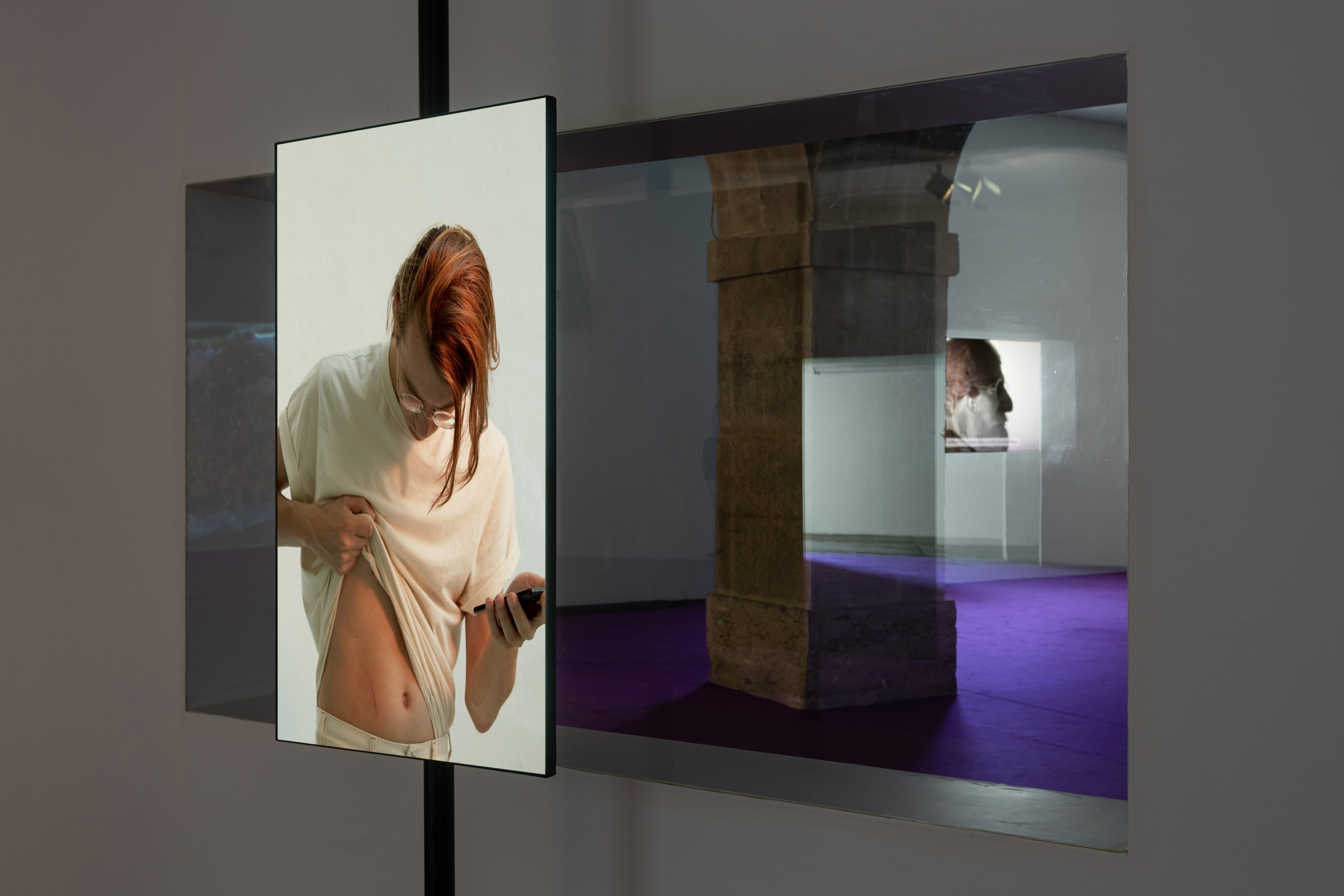
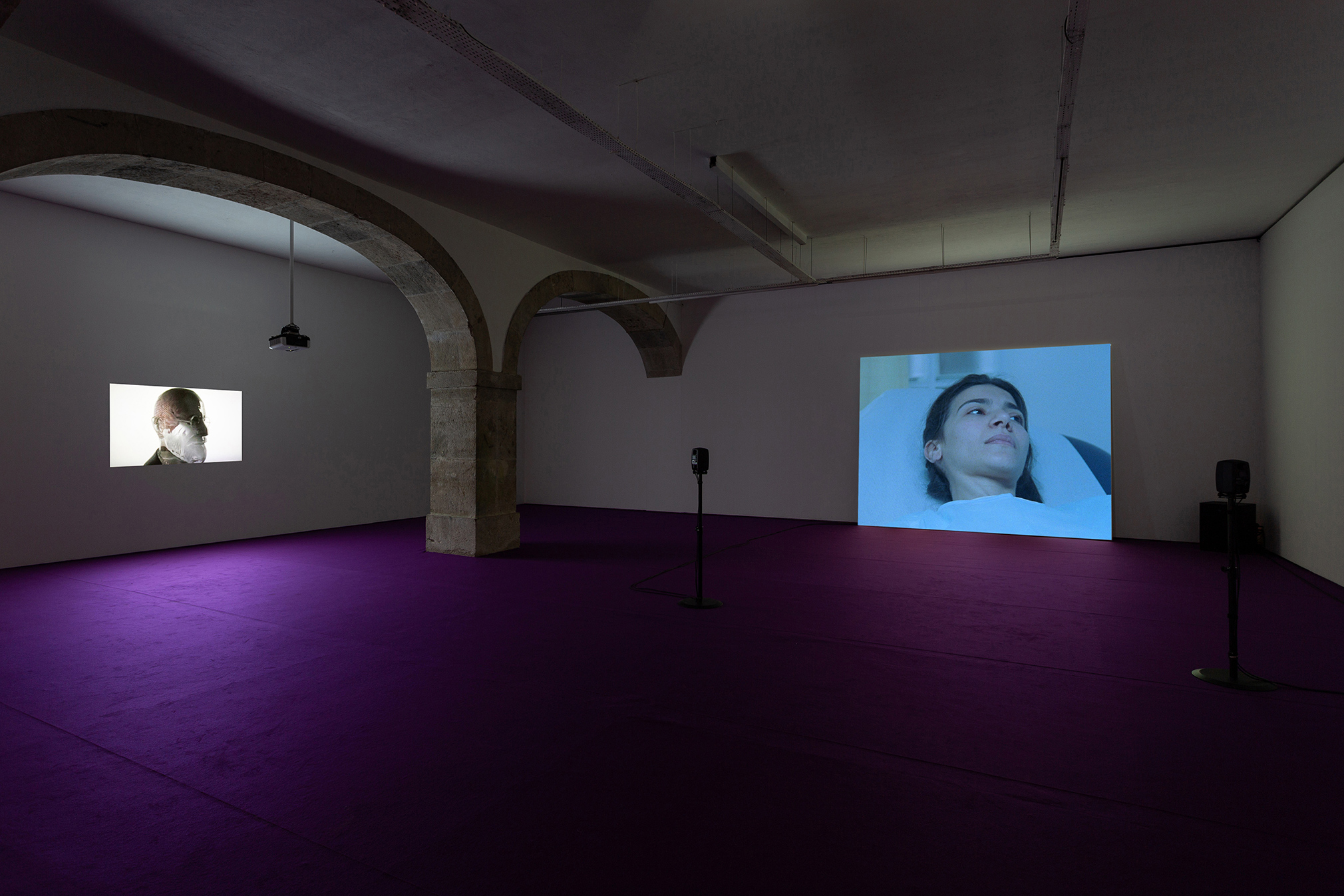
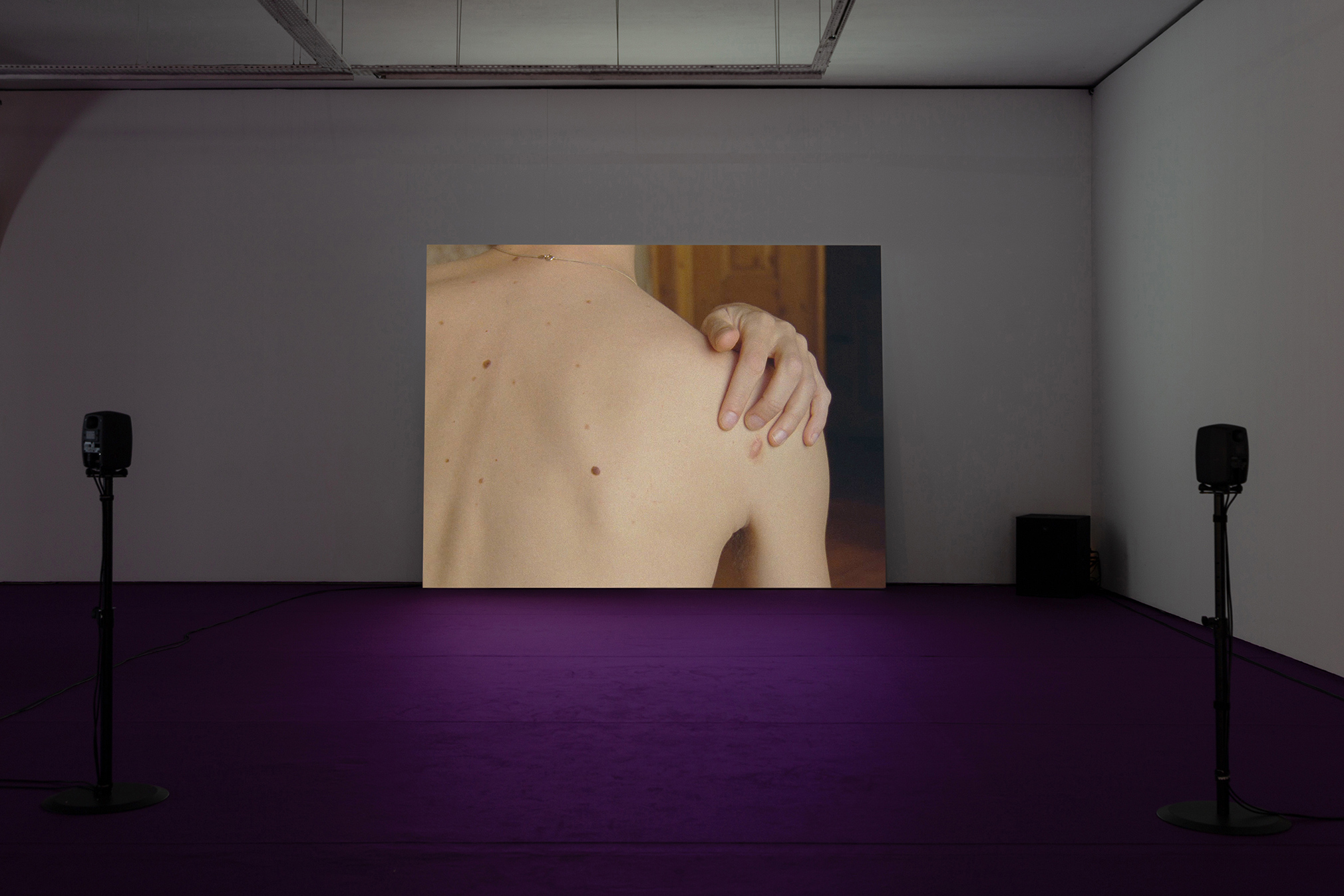
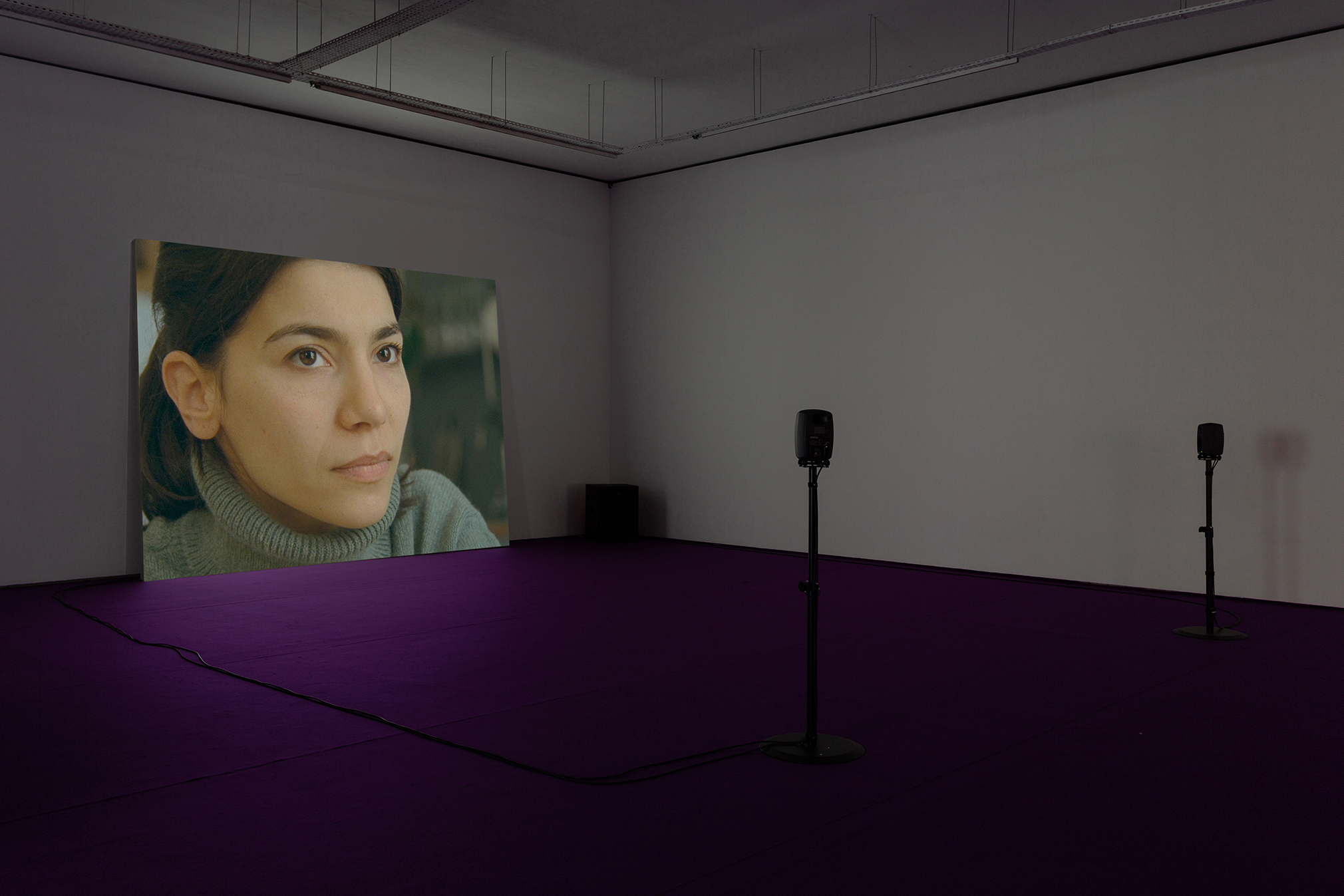
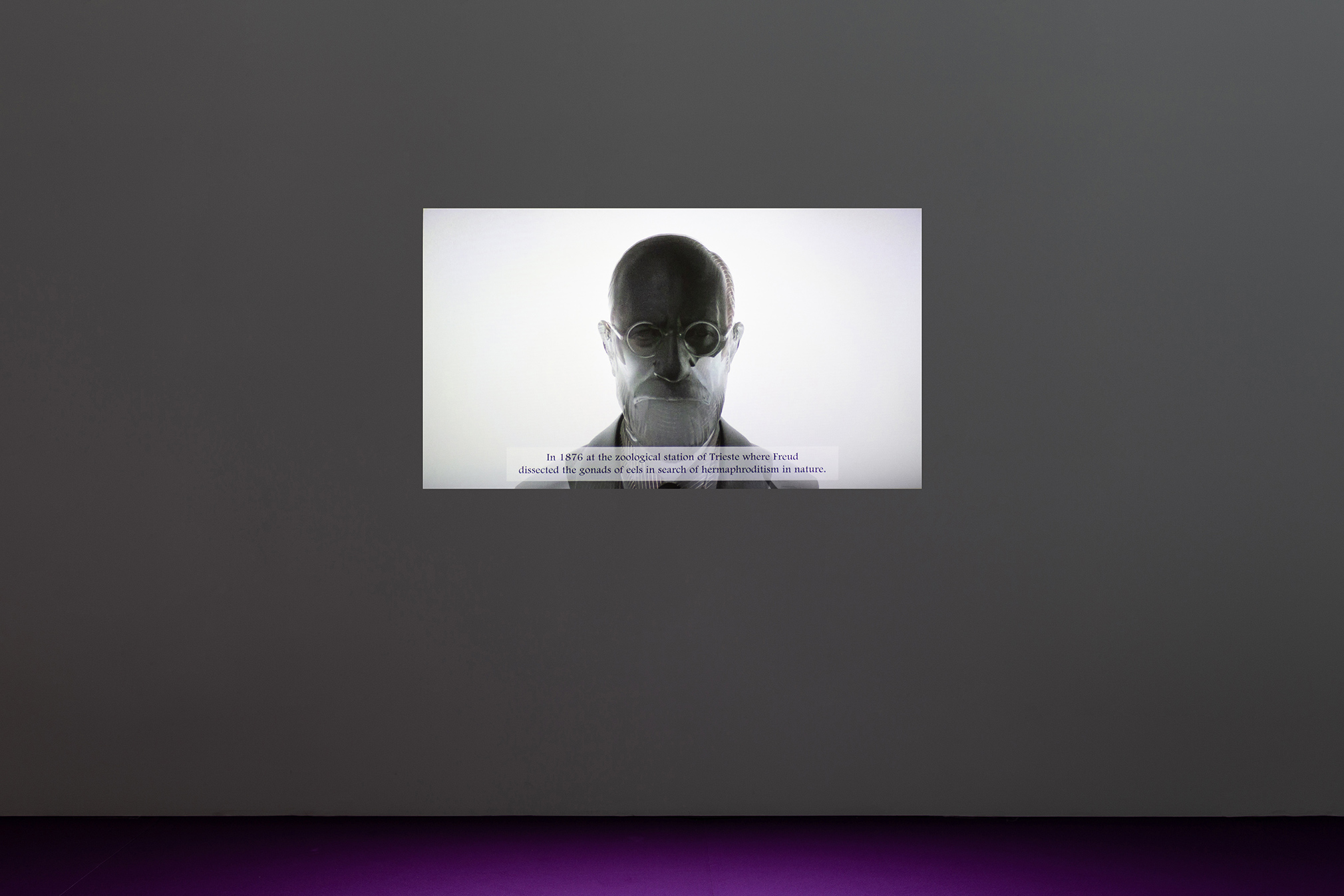
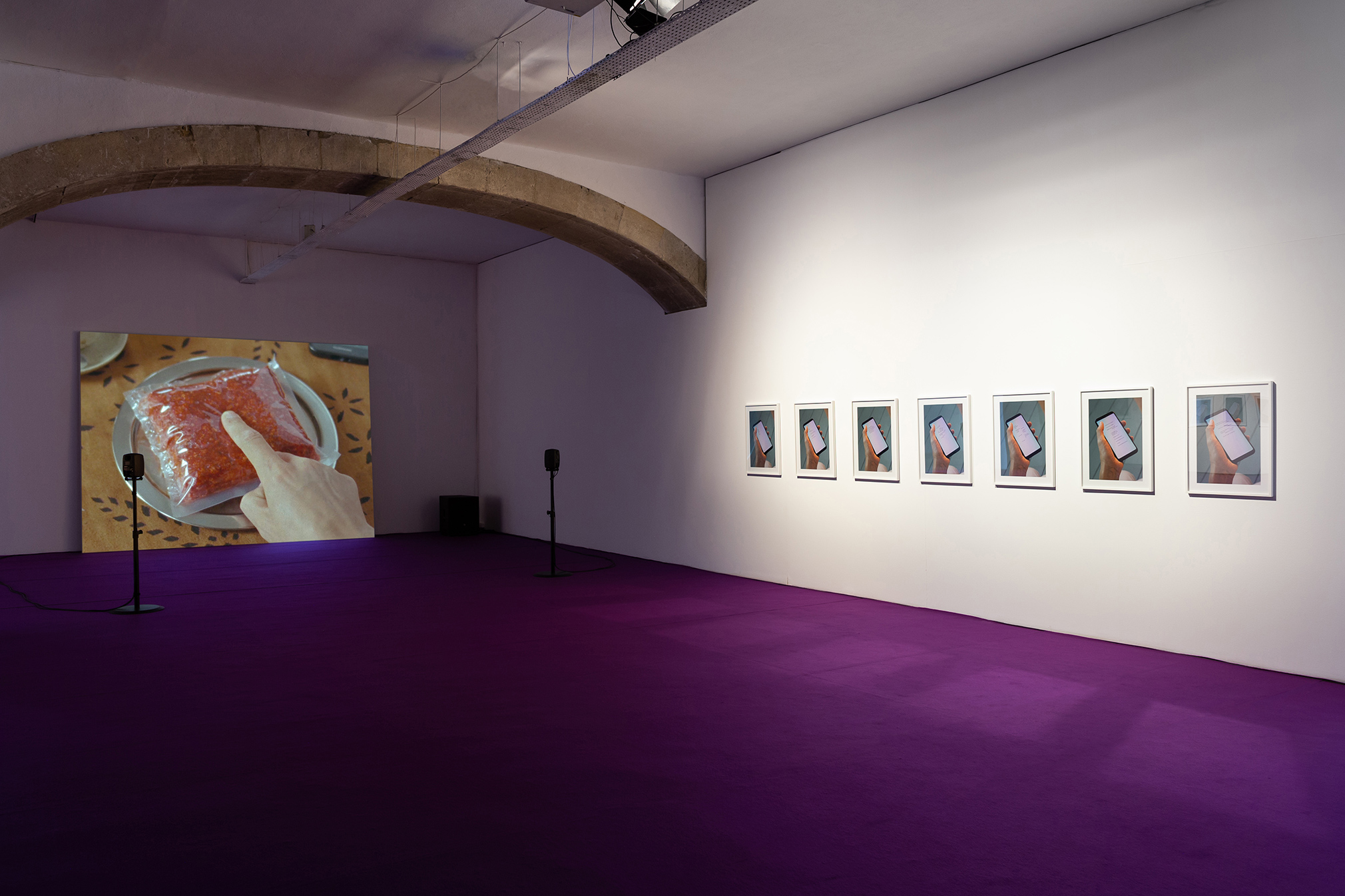
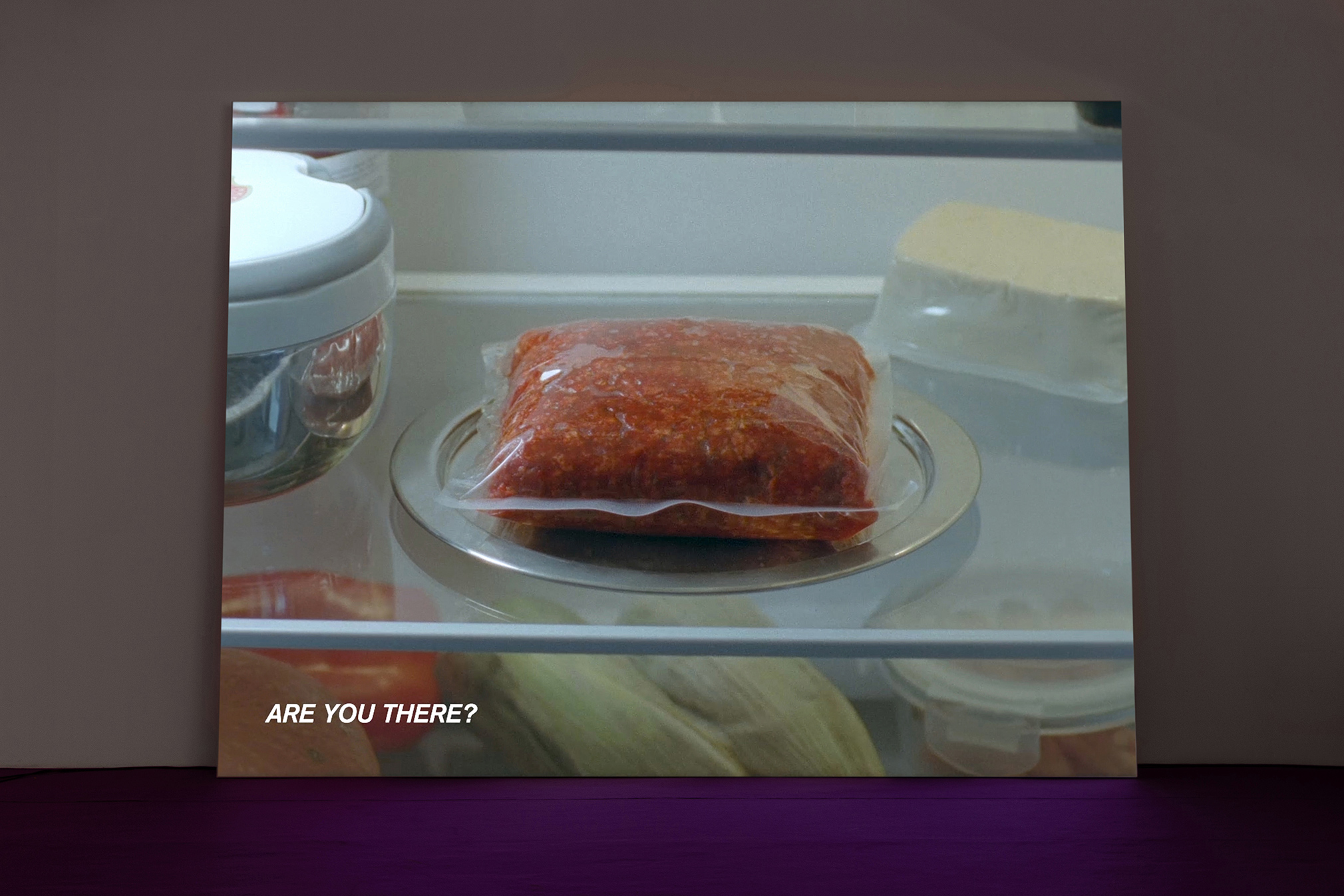
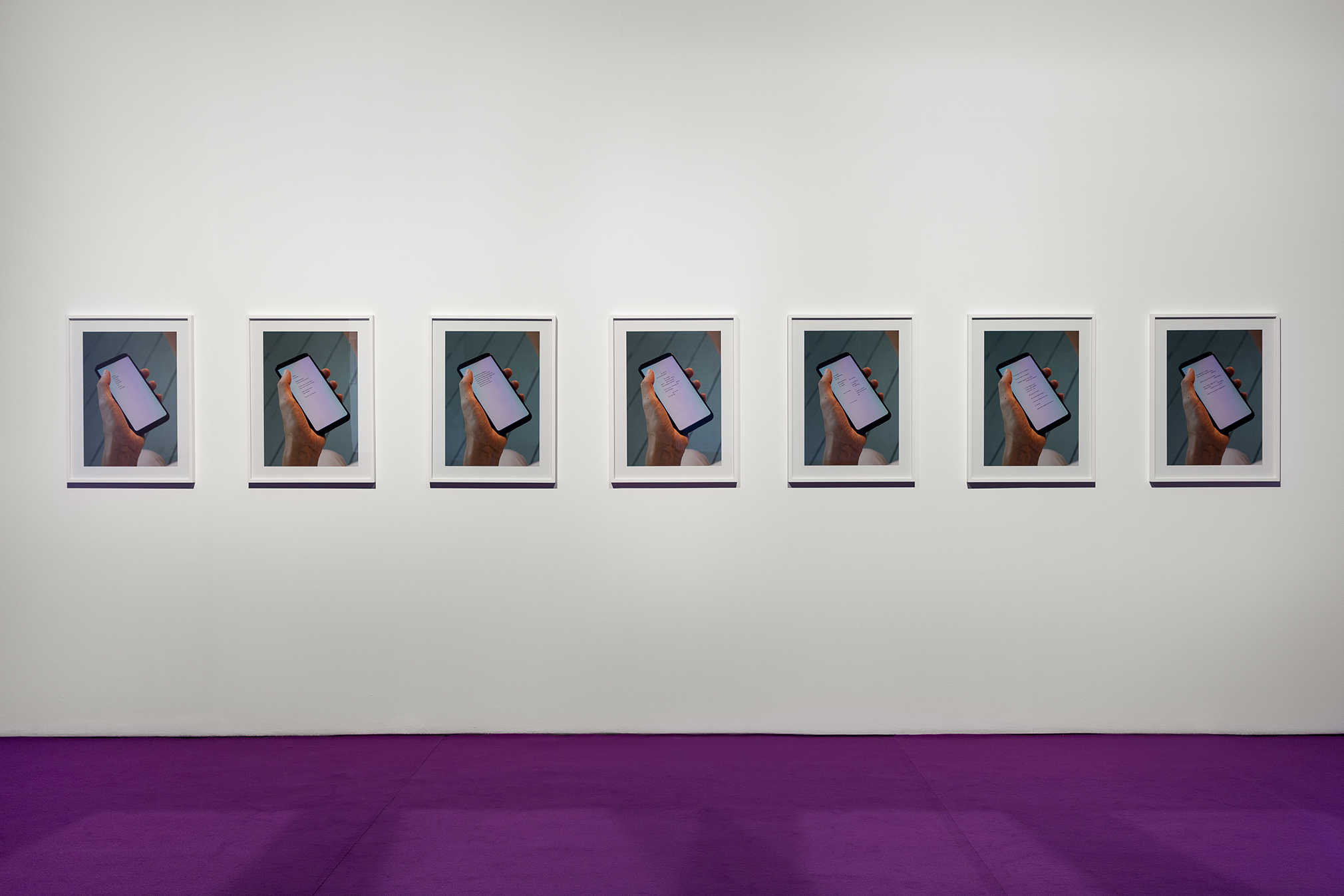
Medieval Bodies
Exhibition views at Torreão Nascente da Cordoaria Nacional - Lisbon Municipal Galleries, Portugal, 2021. Curated by Luís Silva.
With the kind support of DGArtes.
"Through a body of work that includes recent works presented for the first time in Portugal and a new piece developed specifically for Medieval Bodies, Pedro Neves Marques traces a simultaneously emotional, reflexive, and speculative narrative on the gendering of bodies and science and on the construction of the natural-artificial binary. Intersecting strategies of autofiction with codes of soft science fiction, the exhibited works echo a set of issues that are central to contemporary thought, including queer reproduction and gestation, fears of artificiality, and fluidity between human and nonhuman bodies.
Whether through writing, film, or installation, the work of Neves Marques reflects a commitment to speculative fiction as a tool to deal with current and urgent issues that, in Medieval Bodies, are materialised in queer reproductive rights, the possibilities and limits of the artificial, and the definition of the human body. If in other works by Neves Marques the ecological question is essential, here the focus is placed on the fundamental violence that brings these problematics together and in which capital constructs, legitimates, and reproduces the nature vs. culture binary. This violence is transversal to their work, as it is felt directly in our bodies, shaping them, defining them, and simultaneously limiting and expanding them. It is this process, however, which also enables the imaginative development of parallel narratives about near futures that are practically indistinguishable from our present.
Neves Marques is fluent in the codes of science fiction, both its critical possibilities and its blind spots, allowing them to talk about emotions, biology, reproduction, technology, and politics from both a biographical and a fictional point of view, producing an anthropology of futures already here in the present or are soon to come and imagining divergent ways of being in the world."
- from the exhibition press release, by Luís Silva.
Exhibition views at Torreão Nascente da Cordoaria Nacional - Lisbon Municipal Galleries, Portugal, 2021. Curated by Luís Silva.
With the kind support of DGArtes.
"Through a body of work that includes recent works presented for the first time in Portugal and a new piece developed specifically for Medieval Bodies, Pedro Neves Marques traces a simultaneously emotional, reflexive, and speculative narrative on the gendering of bodies and science and on the construction of the natural-artificial binary. Intersecting strategies of autofiction with codes of soft science fiction, the exhibited works echo a set of issues that are central to contemporary thought, including queer reproduction and gestation, fears of artificiality, and fluidity between human and nonhuman bodies.
Whether through writing, film, or installation, the work of Neves Marques reflects a commitment to speculative fiction as a tool to deal with current and urgent issues that, in Medieval Bodies, are materialised in queer reproductive rights, the possibilities and limits of the artificial, and the definition of the human body. If in other works by Neves Marques the ecological question is essential, here the focus is placed on the fundamental violence that brings these problematics together and in which capital constructs, legitimates, and reproduces the nature vs. culture binary. This violence is transversal to their work, as it is felt directly in our bodies, shaping them, defining them, and simultaneously limiting and expanding them. It is this process, however, which also enables the imaginative development of parallel narratives about near futures that are practically indistinguishable from our present.
Neves Marques is fluent in the codes of science fiction, both its critical possibilities and its blind spots, allowing them to talk about emotions, biology, reproduction, technology, and politics from both a biographical and a fictional point of view, producing an anthropology of futures already here in the present or are soon to come and imagining divergent ways of being in the world."
- from the exhibition press release, by Luís Silva.